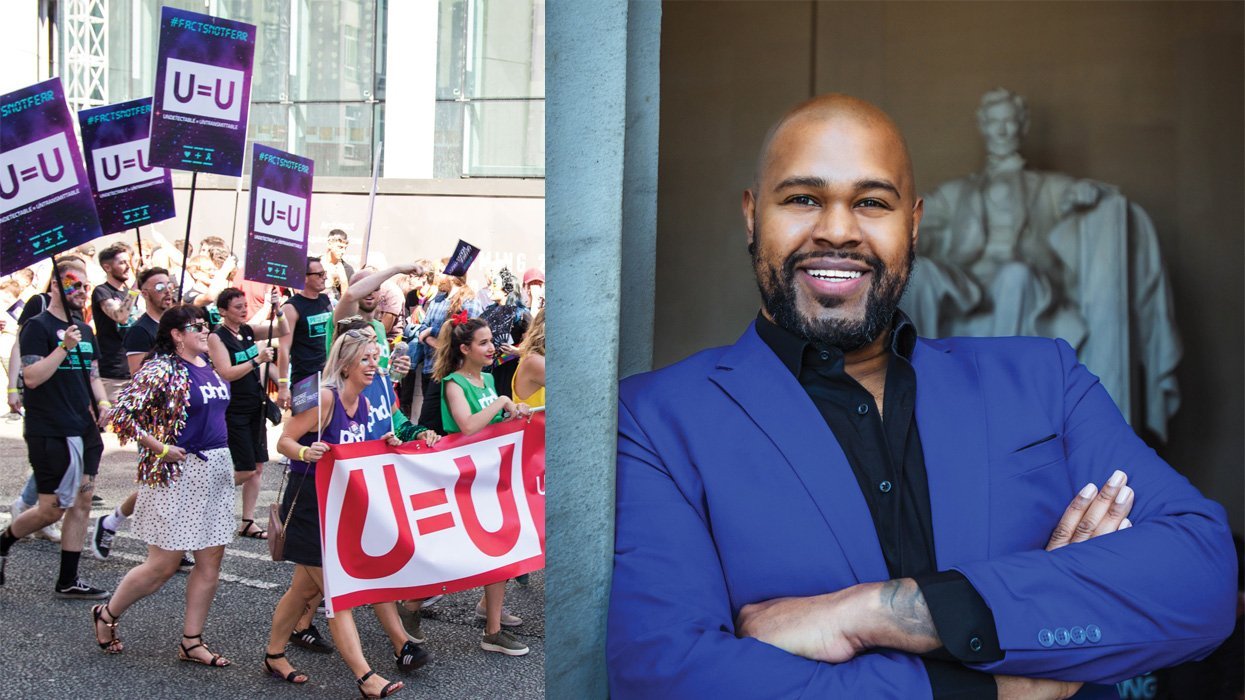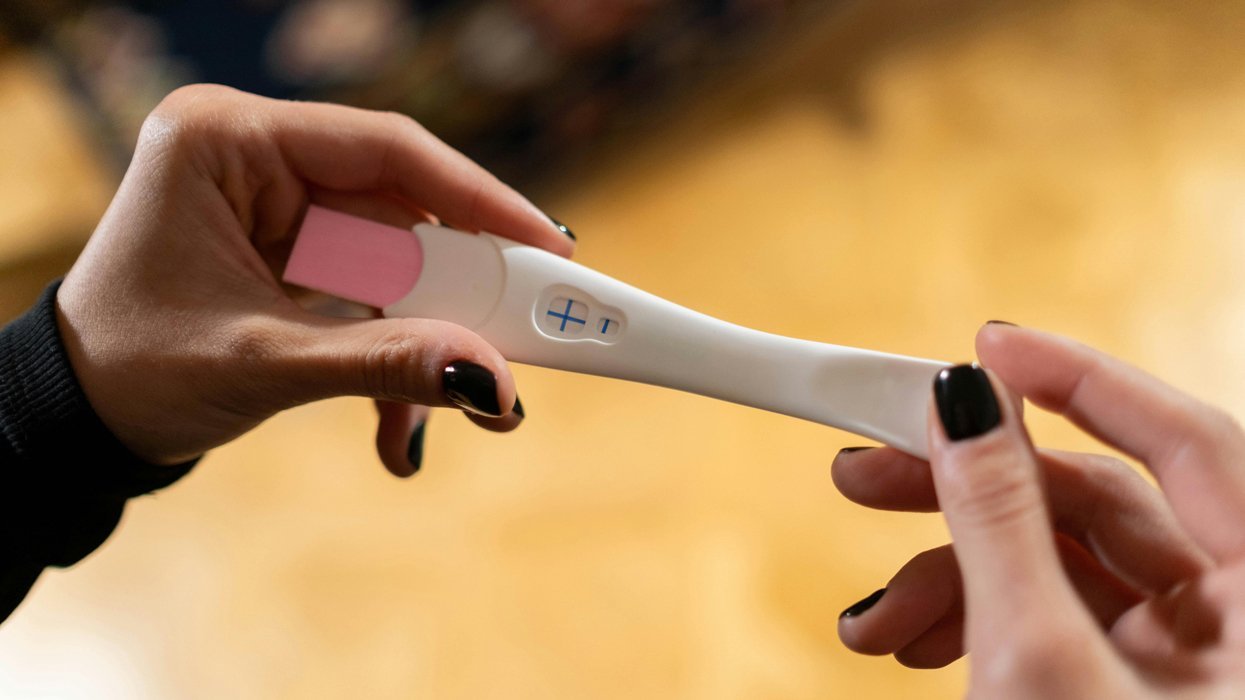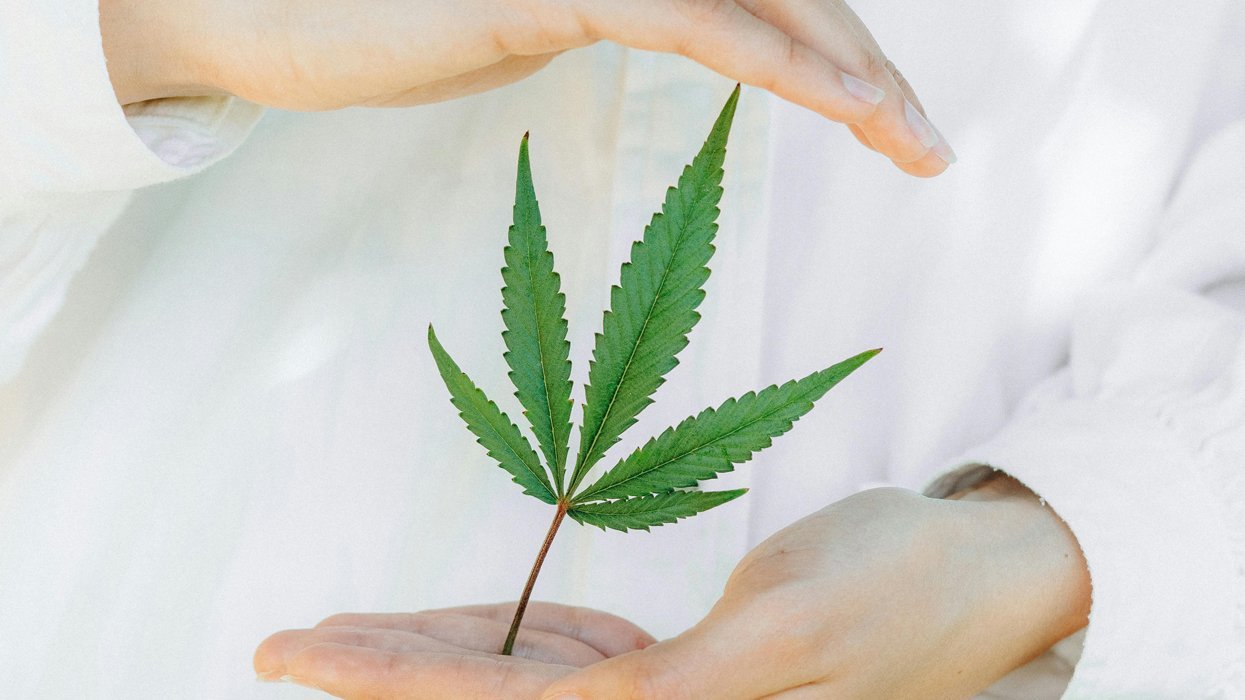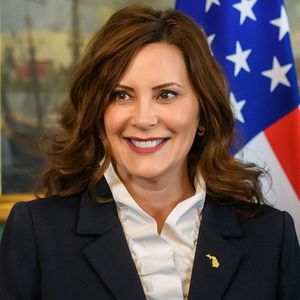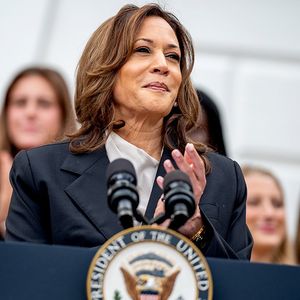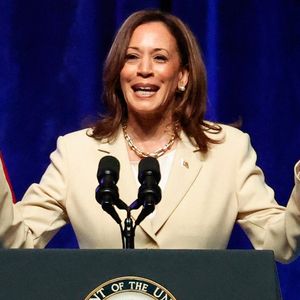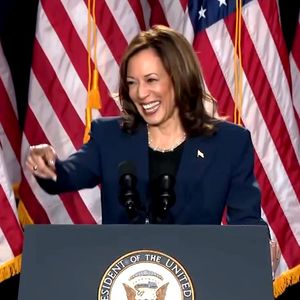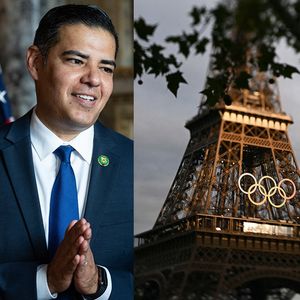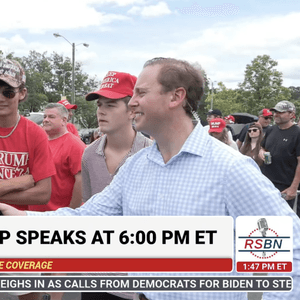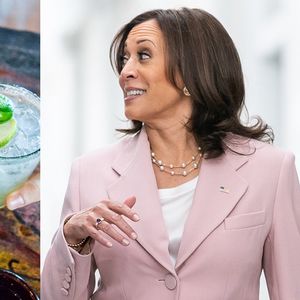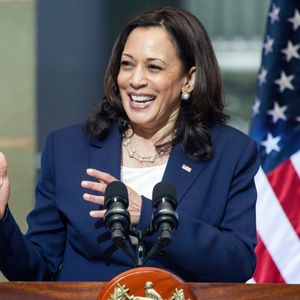The Trans Pacific Partnership (TPP) free-trade treaty has supporters from both sides of the conservative/progressive aisle. It has Doctors Without Borders “horrified,” in large part because it would dramatically reduce global access to HIV drugs and would embrace nations that threaten the very lives of their LGBT citizens. So why aren’t more HIV and LGBT organizations up in arms about it?
FIRST, WHAT IS TPP?
TPP is a massive trade agreement encompassing the Asia-Pacific region. Under negotiation for nearly a decade, the treaty is an attempt to create a Pacific Rim free-trade zone between America and 11 other nations — Canada, Mexico, Peru, Chile, Vietnam, Brunei, Japan, Singapore, Australia, New Zealand, and Malaysia — although other countries may be able to join later.
According to Lydia DePillis of The Washington Post, these countries represent some of “the U.S.' biggest and fastest-growing commercial partners, accounting for $1.5 trillion worth of trade in goods in 2012 and $242 billion worth of services in 2011. They're responsible for 40 percent of the world's GDP.”
This would make TPP the world's largest economic trade agreement.
The U.S. Trade Representative describes TPP as a “comprehensive deal, providing new and meaningful market access for goods and services; strong and enforceable labor standards and environmental commitments; groundbreaking new rules designed to ensure fair competition between state-owned enterprises (SOEs) and private companies; commitments that will improve the transparency and consistency of the regulatory environment to make it easier for small- and medium-sized businesses to operate across the region; a robust intellectual property (IP) rights framework to promote innovation, while supporting access to innovative and generic medicines and an open Internet; and obligations that will promote a thriving digital economy, including new rules to ensure the free flow of data.”
DePillis suggests that TPP may be an attempt to establish relationsips in the Pacific to counter China’s growing power: “Scholars such as Columbia University's Jagdish Bhagwati are worried that the TPP [is] an effort to ‘contain’ China and provide an economic counterweight to it in the region. Many of the TPP's current provisions are designed to exclude China.”
In a New York Times opinion piece, Thomas Friedman argues that’s a valid reason for TPP, “Because these deals are not just about who sets the rules. They’re about whether we’ll have a rule-based world at all… China is trying to unilaterally rewrite the rules. Russia is trying to unilaterally break the rules. There has never been a more important time for the coalition of free-market democracies and democratizing states that are the core of the World of Order to come together and establish the best rules for global integration for the 21st century, including appropriate trade, labor and environmental standards.”
WikiLeaks publisher Julian Assange argues, "It is a mistake to think of the TPP as a single treaty. In reality there are three conjoined mega-agreements, the TiSA, the TPP, and the TTIP, all of which strategically assemble into a grand unified treaty, partitioning the world into the West versus the rest."
Unfortunately, there’s a lot we simply don’t know about TPP. That’s because there has been unprecedented secrecy about the document and negotiations. Which makes it difficult for anyone to speak about it with certainly. But it could have devastating effects on HIV and AIDS globally.
 WHY ALL THE SECRECY?
WHY ALL THE SECRECY?
According to The New York Times, the Office of the United States Trade Representative argues secrecy is necessary because, “negotiators need to communicate with each other with a high degree of candor, creativity, and mutual trust. To create the conditions necessary to successfully reach agreements in complex trade and investment negotiations, governments routinely keep their proposals and communications with each other confidential.”
But that hasn’t been enough to squelch concerns about the level of secrecy that the government has enforced.
“Despite the wide-ranging effects on the global population,” Wikileaks said in a press release yesterday. “The TPP is currently being negotiated in total secrecy by 12 countries. Few people, even within the negotiating countries' governments, have access to the full text of the draft agreement and the public, who it will affect most, none at all. Large corporations, however, are able to see portions of the text, generating a powerful lobby to effect changes on behalf of these groups and bringing developing country members reduced force, while the public at large gets no say.”
In another press release, Julian Assange (pictured above), the WikiLeaks publisher who has seen more of the treaty than almost any civilian posits that TPP is "taking shape in complete secrecy, because along with its undebated geostrategic ambitions it locks into place an aggressive new form of transnational corporatism for which there is little public support."
Even Congressmen haven’t had access to the document. Senator Elizabeth Warren of Massachusetts, a Democrat, publicly criticized the Obama administration in April over the lack of transparency, arguing that the White House should not “keep the American people in the dark.”
Warren has also raised concerns about the negative impact previous "free-trade" treaties (including NAFTA) have had on American citizens.
After President Obama told MSNBC’s Chris Matthews that Warren "misunderstood" the facts and was just “wrong on this,” Warren replied, “The administration says I’m wrong – that there’s nothing to worry about. They say the deal is nearly done, and they are making a lot of promises about how the deal will affect workers, the environment, and human rights. Promises — but people like you can’t see the actual deal.”
Executive Director of Pride at Work Jerame Davis calls the back-and-forth between Obama and Warren, “really instructive on how dysfunctional the conversation is in trying to actually make TPP understandable. You’re not allowed to even talk about it. So by nature, because of this, the problems that we talk about are kind of vague.”
That has been one of Obama’s arguments: that Warren’s (and the progressive left’s) complaints are “too vague.”
“If he would declassify the document and let us read it," Davis responds, "then we could be very, very specific about our complaints about what needs to be fixed.”
As things stand now, Davis says, “we can’t get specific because anybody who read the agreement; if they get specific about what’s in the agreement, they are literally committing treason and facing prison time.”
As Davis’s comments indicate, those complaining about the clandestine nature of the negotiations aren’t limited to politicians and freedom of information activists (like those at Wikileaks, which has published several leaked portions of the agreement).
As an Occupy.com article reports, the British medical journal The Lancet, published a letter — signed by 27 leaders in the global medical community — contending, “although USA-based industry advisors have been granted privileged access to negotiating documents, health agencies have been forced to rely on leaks for information.”
Those “industry advisors” given “privileged access” include the very pharmaceutical companies that are likely to benefit enormously from certain provisions in the treaty.
{C} FOLLOW THE MONEY
FOLLOW THE MONEY
“The reason why the White House was able to get over 60 votes in the United States Senate is because a Senate race cost tens of millions of dollars,” argues Shane Larson, Legislative Director of Communications Workers of America about the vote to the fast track bill. “And those corporations who are negotiating and writing this trade agreement are, in turn, buying these members of Congress — and buying silence from organizations — to get their deal through.”
A recent article in The Guardian reported on how much pro-TPP corporations paid U.S. senators to fast-track the TPP bill.
“Using data from the Federal Election Commission, this chart shows all donations that corporate members of the U.S. Business Coalition for TPP made to U.S. Senate campaigns between January and March 2015” (during the period the fast-track bill was being debated). The amount? In those two to three months more than a million dollars — exactly $1,148,971 — was donated to Senators by members of the Coalition for TPP, with an average of more than $17,000 given to each of the 65 Senators who voted “yes.”
Democratic votes are apparently much cheaper: while the average Republican member received $19,673, the average Democrat received less than half that amount, $9,689, from the pro-treaty donors.
As the Guardian notes, “Two days before the fast-track vote, Obama was a few votes shy of having the filibuster-proof majority he needed. Ron Wyden and seven other Senate Democrats announced they were on the fence. Within just 24 hours they had all caved—several with much fuller war chests.”
Of those seven, the three senators running for re-election in 2016 (Michael Bennet, Patty Murray, and Ron Wyden, all Democrats) received $105,900 from pro-TPP corporate donors. Others senators receiving large donations included Georgia's Johnny Isakson ($102,500), Missouri's Roy Blunt ($77,900), Arizona's John McCain ($51,700), North Carolina's Richard Burr ($60,000), Iowa's Chuck Grassley ($35,000)and South Carolina's Tim Scott ($67,500).
But does all that money changing hands really “buy” those corporations pro-TPP votes? The senators surely would say "no" but many activists certainly think so.
“It’s a rare thing for members of Congress to go against the money these days,” said Mansur Gidfar, spokesman for the anti-corruption group Represent.Us. “They know exactly which special interests they need to keep happy if they want to fund their reelection campaigns or secure a future job as a lobbyist.”
{C} BIG PHARMA, BIG WINNERS?
BIG PHARMA, BIG WINNERS?
What will the impact of TPP be? It depends on who you are. Some stakeholders — like big pharmacutical companies — stand to become even more wealthy if the treaty is accepted with certain provisions intact. In fact, some opponents argue that’s the entire point of TPP.
“What we see in this agreement is that it’s not really about trade,” says Margaret Flowers, an activist with Popular Resistance and Flush the TPP in a press release by the Institute for Public Accuracy. “It’s about creating a backdoor for corporations to get some of the changes that they want: deregulation of the financial industry, longer patent protections for the pharmaceutical industries, Internet privacy restrictions.”
According to Politico,the drug industry stands to gain with increased returns on biologics — technically any medication or treatment created from biological sources, which defines many HIV vaccines and blockers in research —which the auditing firm Deloitte reports already account for $130 billion in 2013 sales, worldwide. Those numbers are projected to hit $290 billion by 2020.
A study by The Peterson Institute for International Economics estimates that the trade agreement could add an additional $78 billion in U.S. income gains per year.
The US Trade Representative says the Pharmaceutical IP provisions of TPP aim to “promote innovation and the development of new, lifesaving medicines, create opportunities for robust generic drug competition, and ensure affordable access to medicines, taking into account levels of development among the TPP countries and their existing laws and international commitments.”
This position reflects that of the pharmaceutical industry, which maintains that extra profits generated under TPP are essential to funding future research and development.
But those who’ve read leaked versions of the IP chapter see a very different goal.
James Love, Director of Knowledge Ecology International, calls the secrecy around TPP, “asymmetrical” and maintains, "TPP is designed to make medicine more expensive.”
On Medium.com, Love wrote about the expense of new drugs entering the market including, “Bristol-Myer’s new drug for advanced melanoma, nivolumab (trade name Opdivo), can cost from $2,500 to $3,700 per week, depending upon the patient weight. The leading new hepatitis C treatments retails at $95,000. The newer chronic treatment regimes for HIV are close to $30,000, per year.”
By dramatically reducing generic competition, TPP could make those egregious prices more and more common.
Conor J. Lynch wrote in an Open Democracy article titled "Trans-Pacific Partnership’s Big Pharma Giveaway" that the idea that “these highly profitable companies need their great profit rates for research and development is simply wrong. The truth is that a great deal of research funding does not come out of their extravagant profits, but from government and university funding (i.e. our tax dollars).”
“In 2013, the pharmaceutical industry had an astonishing 23 perccent profit margin, equal to that of banks,” Lynch says.
That same year, 100 experts in chronic myeloid leukemia reportedly signed a letter demanding that cancer drugs become more affordable. They pointed to statistics from 2012 that showed that 11 out of 12 new cancer drugs approved by the FDA cost more than $100,000 per year — nearly double the costs from just 10 years earlier, when the average price was $5,000 per month (or $60,000 per year).
Lynch points out that 84 percent of the initial pharmaceutical research is typically funded by governments and private universities. Furthermore, “While an industry-funded study from 2003 estimated that the cost of bringing a new drug to market was close to $1 billion, a new study estimated the real cost to be closer to $59 million, after outside funding and tax breaks are taken into account.”
A study published in the British peer-reviewed medical journal The BMJ found that pharmaceutical companies spent much more on marketing and promotion than research and development. It estimated that for every $1 spent on basic research, $19 goes to promotion and marketing
The latest section of TPP released by WikiLeaks, known as the "Transparency for Healthcare Annex," reveals an entirely different way that drug companies could benefit from the treaty.
As The New York Times reports, the "Obama administration is no longer demanding protection for pharmaceutical prices... But American negotiators are still pressing participating governments to open the process that sets reimbursement rates for drugs and medical devices. Public health professionals, generic-drug makers and activists opposed to the trade deal, which is still being negotiated, contend that it will empower big pharmaceutical firms to command higher reimbursement rates in the United States and abroad, at the expense of consumers."
{C} ARE PEOPLE WITH HIV THE BIGGEST LOSERS?
ARE PEOPLE WITH HIV THE BIGGEST LOSERS?
While pharmaceutical companies will be some of the winners if TPP passes as currently written, people with HIV— especially those living in resource poor nations— will be some of the biggest losers.
One chapter of the TPP includes provisions that would have a significantly negative impact on the global fight against HIV. Focused on “intellectual property” the section has a wide reach, ranging from generic medications, to patent registrations, copyright issues, and digital rights. According to WikiLeak’s reading of the released document, “Experts say it will affect freedom of information, civil liberties, and access to medicines globally.” (You can read a leaked version of the intellectual property chapter yourself via WikiLeaks.)
"We were horrified," Judit Rius Sanjuan, the U.S. manager and legal policy adviser for the Access Campaign for Doctors Without Borders, in New York City, told MedPage Today about reading portions of the agreement.
Since then, Doctors Without Borders has become one of the most outspoken opponents about the impact of TPP’s intellectual property section, which the service organization maintains would create monopolies for brand-name pharmaceutical drugs, limit generic competition, and lead to higher drug prices.
"For us that's bad because it would mean less competition, less generics, therefore less affordable medicine," Rius Sanjuan said, about the treaty’s goal of strengthening and lengthening drug patents.
Currently in many countries outside the U.S., MedPage Today says, generic manufacturers can gain marketing approval for their drugs by proving "bioequivalence" to an already approved drug. These decisions are based on the clinical trial information— safety and efficacy studies— already completed by the drug’s original manufacturers.
Currently, the generic market, “generally lowers costs by 30-80 percent,” according to MedPage Today. But, under TPP, companies wanting to develop generic versions of a drug may have to do their own clinical trials, dramatically increasing the costs and time invested — increases that would undoubtedly impact the final price consumers pay for generic drugs and making some drugs off-limits in resource-limited regions.
According to Australia's Sydney Morning Herald, PhRMA, a lobbying group which represents global drug companies like Pfizer, Amgen, and GlaxoSmithKline, insists “Strong intellectual property protections in the TPP to bolster biopharmaceutical innovation will help ensure that unmet patient needs are addressed.”
But that’s not how the opposition see it.
For example, Lynch maintains that expanding patent rights for big pharmaceutical companies would “keep important medicines overpriced around the world.” In particular, Lynch points to the treaty’s “patent term extensions,” and potential of re-patenting drugs for new uses, which could dramaticly extend patent lengths. Under the new provisions, it could be more than two decades before generic alternatives of some medications could be available.
Earlier this year, the HIV organization amfAR — one of the only U.S.-based AIDS organizations to speak out against TPP — released the brief, “Trans-Pacific Partnership: Curbing Access to Medicines Now and in the Future,” strongly opposing the “aggressive IP provisions of the TPP that could lead to unnecessary loss of life.”
Politico reports that “critics of the trade pact say such unprecedented protection from cheaper copycat versions globally would lock in higher drug costs for poorer countries.”
Considering that some of the nations involved in the TPP negotiations are resource poor, it's not surprising that they aren't particularly thrilled with these proposed regulations either. Many already allow generics be developed from patented medications at a much faster rate than the U.S.
Acknowledging this, Trade Representative Michael Froman, testified at a Senate Finance Committee hearing in April that of the 12 TPP participants, “you have five countries that have zero years, four countries that have five years, two countries that have eight years, and we’re [the U.S.] 12 years."
The big drug manufactures would love to codify that 12 year period in TPP. Doing so would require all the participating nations to prohibit the creation of generic drugs during that 12-year patent period.
So what impact would delaying generics for a decade have on the fight to end HIV?
“If the TPP moves forward, it will set a dangerous global precedent,” says amfAR Chief Executive Officer Kevin Robert Frost. “[It will] put lifesaving drugs beyond the reach of millions of people with HIV/AIDS, cancer, tuberculosis, and hepatitis C.”
In a 2011 op-ed in The Advocate, Peter Maybarduk, director of Public Citizen’s Global Access to Medicines Program wrote that “Generic competition drove the 99 percent price reductions for first-line medicine, which facilitated the treatment revolution, lowering costs from $10,000 per person per year to under $100 today. The high costs of patent monopolies, particularly for newer second- and third-line HIV/AIDS medicines — still commonly thousands of dollars per person per year — seriously limit the ability of governments and donors to scale up treatment access.”
In the fight against HIV, Maybarduk maintained, “’getting to zero’ will require dramatically increasing treatment access worldwide. To continue the treatment revolution and seek an end to AIDS, we need to expand generic competition.”
Greg Millett, amfAR Vice President and Director of Public Policy agrees, saying, in a press release, "If the door starts to close on generic production of antiretrovirals, any hope of ending the global AIDS epidemic in our lifetime will quickly evaporate. It’s important to note that we never would have been able to take such giant leaps in fighting the global AIDS epidemic if the proposed IP provisions under the TPP were the standard a decade ago."
According to amfAR's TPP brief, generic medicines have been “crucial to the massive expansion of antiretroviral treatment (ART) for nearly 12 million people with HIV in low- and middle-income countries today.”
Yet, even now, the newer, better-tolerated and more effective antiretroviral drugs are out of reach for many people in resource strapped nations. Under TPP, those medications could stay out of reach for a very long time.
“High prices force impossible choices for health departments allocating fixed budgets insufficient to meet all of their public health obligations,” wrote Maybarduk in The Advocate. “Aid programs, including the U.S. President’s Emergency Plan for AIDS Relief, struggle to expand current treatment levels.”
In the Australian consumer association magazine Choice,Doctors Without Borders argued, "The TPP currently includes some of the harshest provisions against access to medicines ever included in a trade agreement with developing countries, gutting public health safeguards and leaving them unable to take the steps needed to protect the lives and the health of their people above the profit of multinational pharmaceutical companies".
A study on the impact TPP patent changes would have in Vietnam, for example, reported a dramatic impact on the HIV community. Presented at the 2014 Asia-Pacific Innovation Conference in Sydney, Australia, the study, “Assessing the Impact of Alternative Patent Systems on the Cost of Health Care: The TPPA and HIV" revealed that 68 percent of Vietnam’s eligible HIV patients currently receive treatment, but post-TPP only 30 percent could retain access to antiretrovirals. As a result, an estimated 45,000 HIV-positive Vietnamese would no longer be able to afford the life-saving drugs.
Do Americans care what’s going on in Vietnam? Maybe not.
Maybe it’s no coincidence that the most vocal U.S.-based HIV organization regarding the impact of TPP is amfAR, an organization dedicated to ending "the global AIDS epidemic."
“Too often, we see that for a lot of people in the LGBT community it’s a focus on marriage or other self-interested issues and it doesn’t matter what’s happening to HIV-positive people overseas,” says Larson. “It’s not a priority for people unfortunately, and that’s just sad.”
But, as activists like Larson point out, these changes to generic drugs will also have an impact closer to home. Politico says, “Changing the amount of time biologics have the market to themselves could also have major economic consequences [in the U.S.]. The White House estimates that capping the monopoly term at seven years [instead of 12] would save $4.5 billion in spending over a decade just for federal health care programs.”
“If we can’t take actions to lower the prices of medicines,” Love argues, “we can’t expect to have universal access in the United States — and we certainly can’t expect people living in developing countries to have equal access.”
{C} OTHER OPPOSITION TO TPP
OTHER OPPOSITION TO TPP
Of course TPP is hardly limited to the IP chapter.
It is also “about the quality or safety of your food, to what kind jobs you have, to rising inequality,” says Larson (pictured above).
He sees the latter as having a heightened impact on the LGBT and HIV-affected communities: “The Williams Institute has done a really good job of documenting how the LGBT community has much higher rates of poverty — and that inequality is a major issue for us. And these trade agreements lead to and exacerbate inequality problems. It’s across the board how this trade agreement negatively impacts us as either HIV-positive individuals or members of the LGBT community.”
The wide ranging impact of TPP has led to the creation of one of the largest activist coalitions in U.S. history lining up against the treaty.
“One positive of this fight has been that it’s not just the labor movement that has been fighting this,” Larson says. “From the very beginning the NAACP has been part of this fight, the Sierra Club, Greenpeace, Friends of the Earth, Friends of Water — the entire environmental community has been there since the very beginning. You’ve got the labor unions, movement, consumer groups, you’ve got Nuns on the Bus, you’ve got the Franciscan Action Network, you’ve got huge faith community involvement in this.”
Environmental, labor, and intellectual opponents argue that, like the North American Free Trade Agreement (NAFTA), TPP would weaken intellectual property laws, depress wages in a race to the bottom, and gut progress on climate change.
Sierra Club's director of responsible trade, Ilana Solomon, argues that the TPP "could directly threaten our climate and our environment [including] new rights that would be given to corporations, and new constraints on the fossil fuel industry all have a huge impact on our climate, water, and land.”
This opposition existed even before the recent release of sections of the treaty concerned with environmental issues. According to WikiLeaks, "When compared against other TPP chapters, the Environment Chapter is noteworthy for its absence of mandated clauses or meaningful enforcement measures. There are no required penalties and no proposed criminal sanctions."
In a press release, Assange, added: "The fabled TPP environmental chapter turns out to be a toothless public relations exercise with no enforcement mechanism.
Jerame Davis of Pride at Work says there’s a “litany” of issues with the trade agreement: “Everything from environmental issues to food supplies issues to investor-state, where we’re effectively giving corporations power of a national government to sue other national governments and then force changes in [that government’s] laws based solely on whether or not it’s going to affect that corporations profits. Another’s intellectual property stuff. There’s the fight with net neutrality…TPP could effectively overturn the net neutrality that we just won.”
Organizations from Doctors Without Borders to National Nurses United, Occupy, and Wetlands Preserve have not only recognized the impact the treaty could have on the lives of HIV-positive people, many have also released position papers on HIV and TPP. Public Citizen regularly updates a vast array of links about TPP and HIV on their site.
But—outside of amfAR—you won’t see many HIV or LGBT organizations doing the same. Go to nearly any HIV or LGBT organization’s website and search for the terms “TPP” or “Trans Pacific Partnership” and you’ll be lucky to find a single mention of the topic.
“The one part of the progressive community that has not engaged in any meaningful way is the LGBT community and that’s been commented on repeatedly,” says Larson. “So that’s been disappointing to us who are really working towards a broader, deeper, more unified progressive movement.”
 WHY NO LGBT RESPONSE?
WHY NO LGBT RESPONSE?
It’s not just the impact of TPP on HIV and AIDS that LGBT organization have been surprisingly mum about. Its also about the inclusion of Brunei.
Brunei is a tiny oil-rich nation that made headlines when Sultan Haji Hassanal Bolkiah Mu’izzaddin Waddaulah announced the adoption of Sharia law, including the practice of stoning to death those who engage in same-sex relations and severe punishment for transgender people (who are considered "crossdressers").
As Davis points out, women may also face this barbaric mode of execution. “Women who have affairs —and my understanding is even if a woman is raped—if she’s not married, she could [also] face stoning to death. So it’s just astounding to us, and basically anyone in the coalition fighting against TPP that the United States would enter into any kind of a trade agreement with countries that treat their citizens like this.”
(Parts of Malaysia, another TPP partner country, have recently adopted strict Sharia law as well.)
According to Huffington Post, in a February 2015 letter to President Barack Obama, five Democratic co-chairs of the Congressional LGBT Equality Caucus — Reps. Mark Pocan (Wis.), Kyrsten Sinema (Ariz.), Mark Takano (Calif.), David Cicilline (R.I.), and Sean Patrick Maloney (N.Y.) also posed sharp criticism about Brunei and Malaysia being granted trade perks.
“A country that has laws that are anathema to American values doesn’t deserve to be in our trade negotiations,” California Democratic Representative John Garamendi told LGBT Weekly. “We need to send a clear message.”
As the Human Rights Campaign (HRC) reported, in June, 2014 HRC President Chad Griffin (pictured above) joined Pride at Work, AFL-CIO, the National Gay & Lesbian Task Force, and National Center for Transgender Equality leadership in signing a letter to President Obama about Brunei.
The letter reads in part “The Government of Brunei Darussalam’s recently adopted penal code threatens the human rights of minority groups including women, religious minorities, and lesbian, gay, bisexual, and transgender (LGBT) individuals. Brunei’s enactment of strict Sharia Law, which codifies into law the act of stoning its gay citizens, has placed that country outside the bounds of international standards for human rights. The undersigned are deeply concerned and ask that you direct the U.S. Trade Representative to insist that Brunei address their human rights violations before continuing further Trans-Pacific Partnership (TPP) trade negotiations. ”
Although Pride at Work’s Davis says that the letter’s language was softened from what he had originally proposed, it seems this statement was not well received by administration officials and since then, labor leaders complain that few LGBT organizations have been “fully engaged” in opposition to TPP.
That’s not exactly how LGBT and HIV organizations see it.
“The National LGBTQ Task Force has been vocal about the real threat the Trans-Pacific Partnership (TPP) free trade agreement poses to good paying U.S.-based jobs, access to affordable life-saving medicine including HIV treatment, and the work to advance freedom, justice, and equality for LGBTQ people,” Rea Carey, National LGBTQ Task Force Executive Director told Plus. “We have expressed our concerns with the TPP by issuing joint letters to members of Congress, collaborating on full-page ads, participating in press events, and articulating our position to the Administration.”
Larson acknowledges, “the Task Force did sign on to a letter that went out during the Senate debate encouraging leadership in the Senate that there be a full throated and vigorous debate around the issue.”
The organization also invited Communications Workers of America president Larry Cohen to the Task Force’s annual conference, Creating Change, “to talk to attendees about the threats of TPP on the community,” Larson admits.
In comparison, Pride at Work (which has two paid staff positions) has attended regular strategy meetings; actively engaged their members to participate in email blasts, petitions, and call-ins social media advocacy; co-produced fact sheets; attended rallies and protests, and at spoken at multiple press conferences.
“We've repeatedly lobbied other LGBT organizations to get involved more substantively,” Pride at Work's Davis adds. “We are the group that got LGBT issues in TPP any attention at all. Before we engaged, our issues weren't even on the radar.”
Carey writes that the Task Force is concerned about the U.S. “opening up business with governments that have egregious laws criminalizing LGBTQ people [including] countries such as Singapore and Malaysia, where anyone perceived to be LGBTQ faces the threat of imprisonment; or Brunei, where LGBTQ people can be sentenced to death simply because of who they are.”
Furthermore, The Task Force is concerned about potential loss of “millions of good paying jobs” and that “PhRMA member companies could refuse to provide affordable generic versions of HIV medication to people living with HIV in economically disadvantaged communities abroad. This trade agreement would be a huge step backwards in the fight to eradicate HIV/AIDS and the work toward full equality for LGBTQ people."
The Task Force supplied us with the most detailed and specific statement in opposition to the treaty that we received. However, you'd be hard pressed to find a statement about TPP on the Task Force’s website.
“Despite great concerns about it, Project Inform is not taking a position on the Trans-Pacific Partnership as a whole,” writes a representative from that HIV education organization. “This is in part due to the fact that insufficient information has been made available about its terms and also because the agreement involves issues beyond the scope of our mission and expertise. We do, however, strongly oppose those portions of the agreement that would extend intellectual property or patent protections in order to inhibit the production of generic medications and cause lifesaving medications for HIV and many other medical conditions to be unaffordable or entirely unavailable globally. These provisions fly in the face of the outstanding work of the United States to develop effective HIV treatment programs throughout the world, and need to be removed from any final agreement.”
“Like a number of organizations,” Jason Rahlan, Communications Director, for HRC, told Plus, “HRC has expressed concerns about the potential impacts of a TPP agreement, particularly around human rights and access to affordable HIV/AIDS medications. A final agreement needs to ensure that access to affordable HIV/AIDS medications is not made more difficult through patent enforcement provisions.”
HRC’s website contains a press release about the jointly signed 2014 letter urging Obama to not move forward with negotiations on TPP without addressing Brunei's brutal anti-LGBT legislation.
As with The Task Force, and Project Inform, searching Gay Men’s Health Center (GMHC)’s website for TPP elicits “Search results for: Trans pacific partnership. No Results Found.” Neither TPP nor drug patent protections make it onto GMHC’s list of “Key Issues.”
Plus magazine did not receive a statement from GMHC in response to our requests for the organization's position on TPP. However, we were assured that our email had been forwarded to both Jason Cianciotto, Director of Public Affairs and Policy; and Anthony Hayes, GMHC's Managing Director of Public Affairs and Policy. We were also assured that not hearing back from Cianciotto and Hayes was “more about their work schedules and being in Albany for a few days this week.”
Likewise, Lambda Legal pointed to their own busyness, responding, “We’re not ignoring you. Our experts have been out-of-pocket this week at conferences. We’ll get back to you next week.” The following week they added, “as mentioned last week, our key experts on this subject have been traveling and, while discussions on this topic have begun, we won't have anything for you by your deadline.” An offer to extend the deadline was not accepted. Searching Lambdalegal.org for TPP elicits no results, but Trans Pacific Partnership brings up a list of articles: all of which are actually about transgender activism, not the trade agreement.
 THE SILENCE IS DEAFENING
THE SILENCE IS DEAFENING
For some involved in the opposition to TPP, statements of support like those we received from HRC and Project Inform are too little too late.
“It would be really, really nice to have some of my LGBT brothers and sisters in organizations joining this fight in a more substantive way,” says Pride at Work’s Jerame Davis woefully. “Same thing with HIV/AIDS organizations. Just the fact that this could extend patents on medications and drive up the cost and reduce access to life-saving drugs should be an issue that they should be screaming from the roof tops about. We already have an issue of people not being able to afford their medications in this country, let alone in other countries, so why are we going to make this even harder? For something that is necessary and life saving? it just doesn’t makes sense. And they should speaking out. Thank god for amfAR because they’re the only one. And there should be more.”
“I’ve been — and others are — very troubled by the lack of full throated engagement by leading LGBT organizations,” concurs Shane Larson of Communications Workers of America. “I mean, it’s been good to see amfAR publishing their report and talking about what it means in terms of access to life-saving drugs and treatments for HIV. But, other than that, you’ve heard very little — or nothing — from major LGBT organizations about the HIV issues around TPP and access to medicines and therapies for treatments. Across the board it’s just been really troubling and disappointing.”
So what's behind that silence?
Sean Strub (pictured above) thinks it has to do with politics (and he's not the only one).
The HIV activist founded Poz magazine and is the director of the Sero Project. He wrote about the potential impact of intellectual property protections on the HIV epidemic in his latest book, Body Counts.
"The muted voice from the U.S. LGBT community on TPP arises in large part from the same reasons why the U.S. LGBT's community's is so muted on the epidemic more generally," Strub tells Plus. "For some of our community leadership that is so closely tied to the Obama administration, I think there is a reluctance to oppose the White House on anything important, for fear of being thrown out of the club, losing access or no longer receiving the invitations and perks that accompany their unquestioning support.”
Larson also suspects ties to the Obama administration may be behind the lack of "full engagement."
“Quite frankly," he says, "I think that it’s sad and shameful that leading LGBT organizations have not been more out front. We were so hopeful, a year ago, when a number of organizations — HRC and the Task Force and Pride at Work — wrote a letter addressing these concerns."
But, Larson says, after that letter went out everything changed.
"I heard that the White House was very, very angry. And the silence has been deafening since then from the leadership in these organizations.”
In the course of researching this article, we talked to several people who would only speak openly off the record or anonymously because they reportedly feared the consequences if colleeques learned they were talking to the press.
Like Strub and Larson, these sources say that LGBT and HIV organization have shyed away from the TPP debate because they don't want to risk damaging their working relationship with the Obama administration. In fact these annoymous sources have gone even farther, alledging that members of the administration have actively pressured LGBT leaders into silence, and suggesting that “implicit or explicit” threats to cut funding had been made to AIDS organizations that didn’t immediately fall in line and support the White House’s position on TPP.
If true, it's not a surprise groups are nervous. There are potentially millions of dollars at stake.
Speaking about one LGBT organizaiton, a source inside the TPP opposition coalition, told Plus, “I was told in very blunt terms that they weren’t going to bite the hand that feeds them. They were not going to put that in jeopardy over something that, from their perspective, is going to happen whether they oppose it or not.”
Another source, who works for a national nonprofit focused on LGBT issues, confirmed Larson's speculation that things changed after that 2014 letter from HRC, Pride at Work, and the Task Force reached the administration. In response Valerie Jarrett, a senior advisor to the President, allegedly called at least one LGBT organization.
“Valerie called HRC specifically,” the source told us, to express the administration’s “disappointment” that HRC was weighing in on this issue. (HRC declined to comment to Plus on the truth of this claim.)
“It was very clear to me that someone in the White House was putting tremendous pressure to keep them silent,” Larson recalls thinking at the time. “There’s nothing else that can explain why they were engaging and then, once it become public, all of a sudden complete and total non-engagement on the issue.”
Organizations large and small rely on federal funding or must work with or lobby various federal agencies for the change they hope to achieve. So, in some ways, it’s not surprising that—with so much to gain—LGBT organization are loathe to go against the administration, especially one that has created great change for the LGBT communities. But what is disconcerting is the implication that the Obama administration demands total loyalty.
Its one thing if Obama is only supporting LGBT causes because he wants our community’s votes and finacial support; it’s another thing altogether to expect that supporting marriage equality and gay military service means LGBT people can never publicly oppose any policy or position the president takes, no matter how offensive it is to our community.
The same holds true for HIV organizations and pharmaceutical companies. Just because those corporations greatly support HIV programming and create the life-saving drugs people with HIV need, does that mean that HIV organizations can never call big pharma out — even when their actions puts poz lives at risk? It certainly shouldn’t.
Meanwhile, the Obama administration has publicly argued that it has the LGBT community’s back.
“The Administration shares the serious concerns about the new Sharia penal code, which is in the process of being implemented,” the Office of the U.S. Trade Representative told Huffington Post in an email. “We have been working closely with the State Department in communicating the strong concerns of both the Administration and Congress to the Bruneian government. In meetings with senior Bruneian government officials, we have made clear that protecting human rights — including the rights of LGBT individuals, women, and religious minorities — is a core U.S. value and a foreign policy priority."
EXPORTING EQUAL RIGHTS
Some supporters of TPP argue that, in becoming trade partners with countries like Brunei and Malaysia we are essentially exporting American values including LGBT civil rights and environmental protections.
In an interview with Politico, Labor Secretary Tom Perez posited, "If we don’t raise the bar, there is no nation in a position to do so; and the nation that will step in and set the standards is China. China is not going to be raising the bar on wages. They’re not going to be raising the bar on environmental protections.”
Bill Reinsch, president of the National Foreign Trade Council, a pro-trade group, told LGBT Weeklythat the best way to get Brunei to alter their civil right violating laws is to engage with them and integrate the country into the Western trading system, not to isolate them. “Our experience has been that sticks don’t work very well, while carrots sometimes succeed,” Reinsch said. “Kicking them out of TPP might make us feel better, but it will diminish the trade agreement and also not achieve the objective of changing their anti-gay policy. In other words, it’s lose-lose.”
In a special opinion piece in our sister publication, The Advocate, eight of the nation's most powerful out leaders, including ambassadors and an envoy to the State Department, seem to agree, arguing that trade agreements can, "promote greater justice beyond our borders. Done right, trade policy is a strong complement to our broader bilateral efforts to urge partner countries to defend and protect the human rights of all individuals. In many ways, the two issues go together: open markets promote development, raise wages, and increase living standards, which in turn goes hand-in-hand with more open and engaged societies that demand a higher standard of protection for civil rights."
The Advocate piece presents these LGBT officials as wholeheartedly supportive of TPP.
"We are proud to be part of an Administration that remains deeply committed to the advancement of human rights for all, including LGBTI persons," the joint statement continues. "President Obama recently said that 'all people deserve to live free from fear, violence, and discrimination, regardless of who they are or whom they love.' The Administration has backed up those words with actions, including through the issuance of a Presidential Memorandum to advance the human rights of LGBTI persons worldwide. This commitment is also clear in trade priorities like TPP, which would represent a significant expansion of enforceable labor rights, and would support the elimination of discrimination with respect to employment."
In closing, they write, "We are committed to working closely with the White House to ensure that any trade arrangement approved by Congress is a force for progress on human rights for everyone, including for LGBTI persons. With America’s interests and values on the line, we hope Congress passes trade promotion authority without delay."
Speaking to Plus before this statement was published, Larson says that the idea that a trade agreement will lead countries to embrace U.S. values of equality and tolerance is "an empty promise."
“That’s an argument that’s been used over and over and over again,” by both Democrats and Republicans, by “whoever’s in charge,” he says. Both political parties have previously argued that “if we engage in trade with [a country] they’re going to get better. We heard it with Brunei where there was no free labor movement and we were told if we just engage them and have a trade agreement it will get better. But what happened when the Arab Spring came? All of their labor leaders were arrested and thrown in jail. That’s after the trade agreement went into effect — a backward slide.”
“The idea that you have more leverage after you sign an agreement is bogus,” Davis agrees. “That just doesn’t track. You always have more leverage before you sign on the dotted line. I’ve never heard of the deal where you have more leverage after the fact.”
Pointing to other examples, like wages in Columbia that were promised to rise with CAFTA, Larson says, “All of these promises are nothing but pie-in-the-sky. We have no leverage. And it’s a broken record of broken promises from the administration — from both Democrat and Republican administrations.”
“And let’s be clear,” Davis added. “Brunei enacted Shiria law while they were in TPP negotiations.”
With a vote (which The New York Times reports could go either way) expected as early as Friday, June 12, and pro-TPP LGBT representatives of the U.S. government voicing their support to The Advocate and urging the House of Representatives to vote for the treaty, Larson urges Plus readers to raise their voices as well.
“There’s still time," he insists. "This could drag out for a little while yet and it’s incumbent upon all of us to stay educated and engaged and make your voices heard. I say this every day to our members here at CWA: challenge the status quo. If you believe an organization isn’t speaking out, then challenge them to speak out.”
Davis and gay activist Cleve Jones penned a strongly worded op-ed that appears today in The Advocate that covers many of these issues. The men argue that because "we have yet to see a single word of the text that proponents of the TPP claim exists… means that no one who has actually read the text is allowed to talk about the specifics in the language. But those who have read it tell us that they cannot find 'enforceable human rights standards' in the more than 1,100 pages of the deal. Those inside sources suggest that we should be concerned. Leaked drafts of various portions of the TPP also contain no such language."
The two long-time activists question how the administration is promoting transparency and accountability "by signing secret deals that no member of the public can view, and which and stand to benefit countries that 'punish' LGBT people and female rape victims with death by stoning? [The Advocate] op-ed from the ambassadors is sadly yet another move by the administration to spin the horrendous truth about this monstrous deal. 'Trust us' is not good enough when the lives of our extended community are at stake. Show us the text. Without it, these half-promises and pinky-swears aren’t worth the time it took to read them."
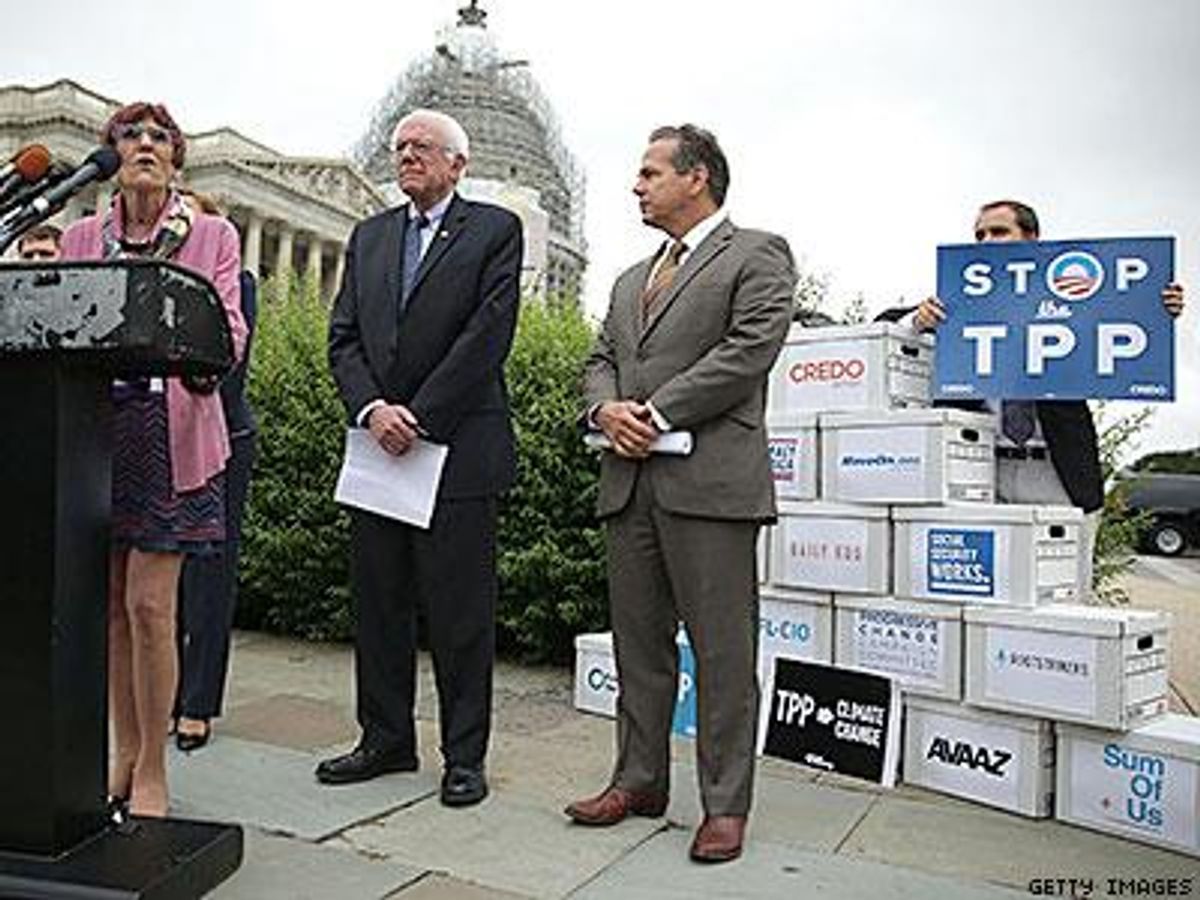
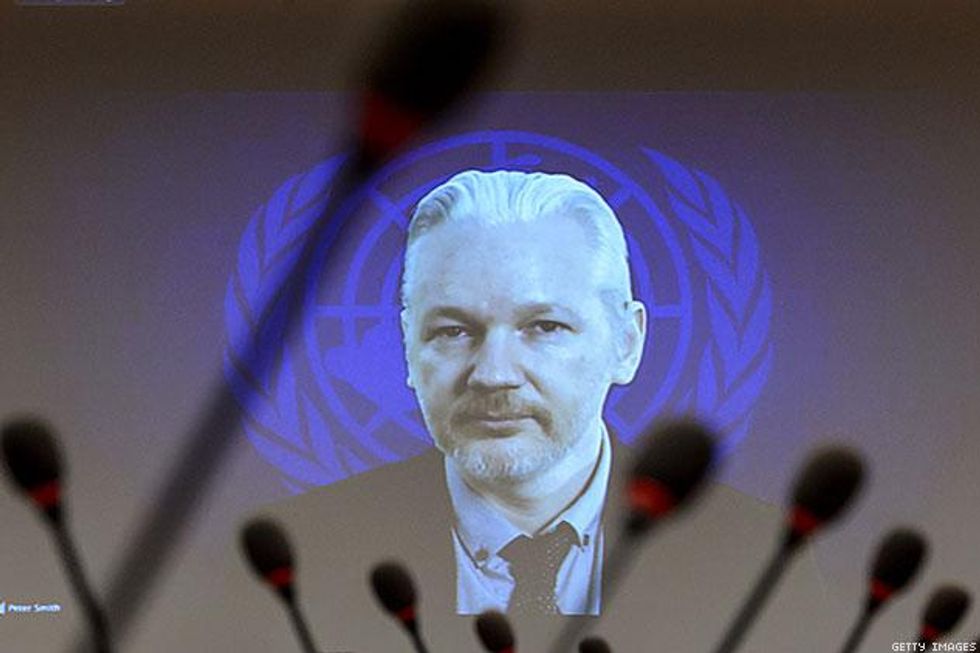 WHY ALL THE SECRECY?
WHY ALL THE SECRECY?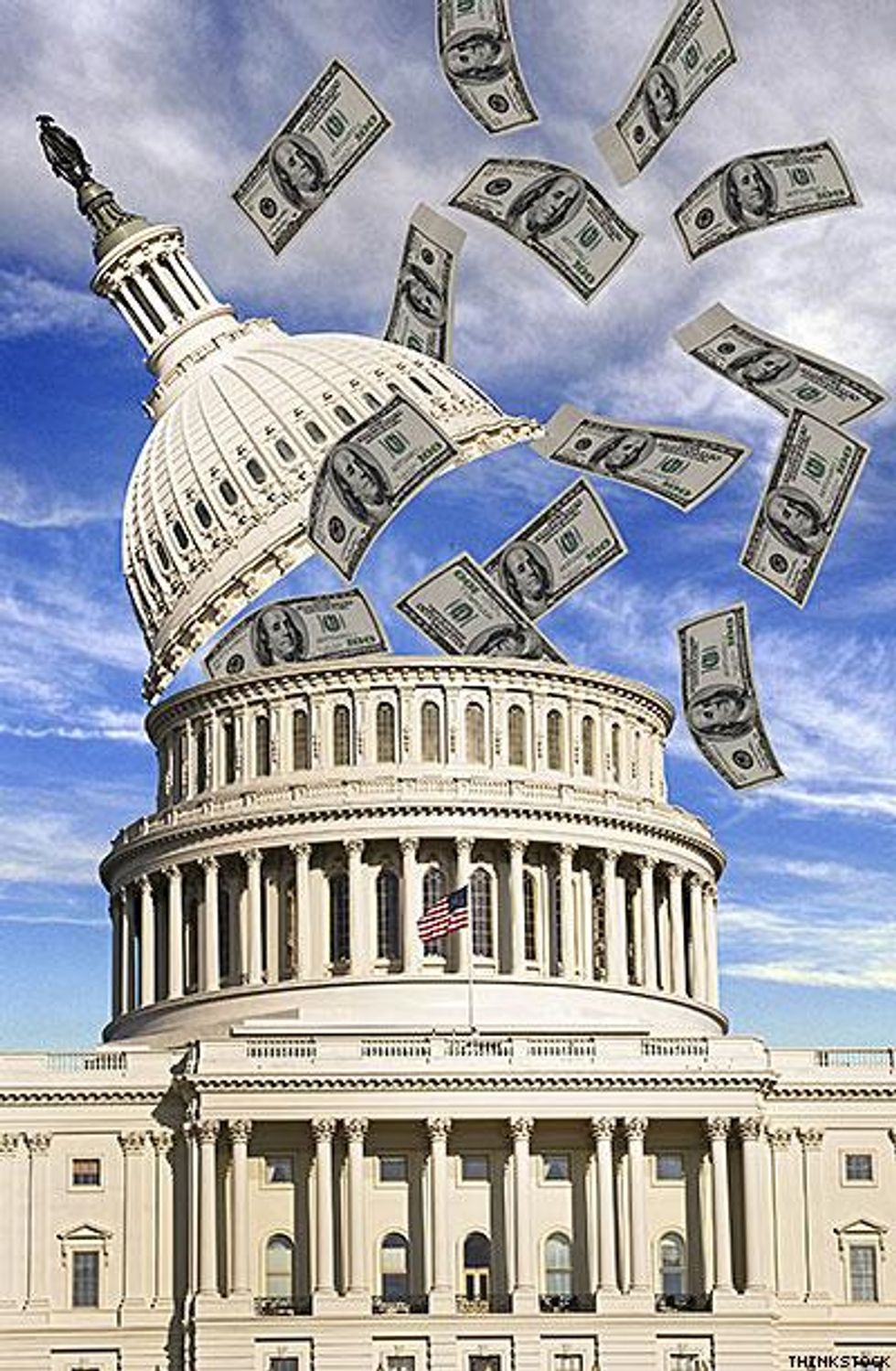 FOLLOW THE MONEY
FOLLOW THE MONEY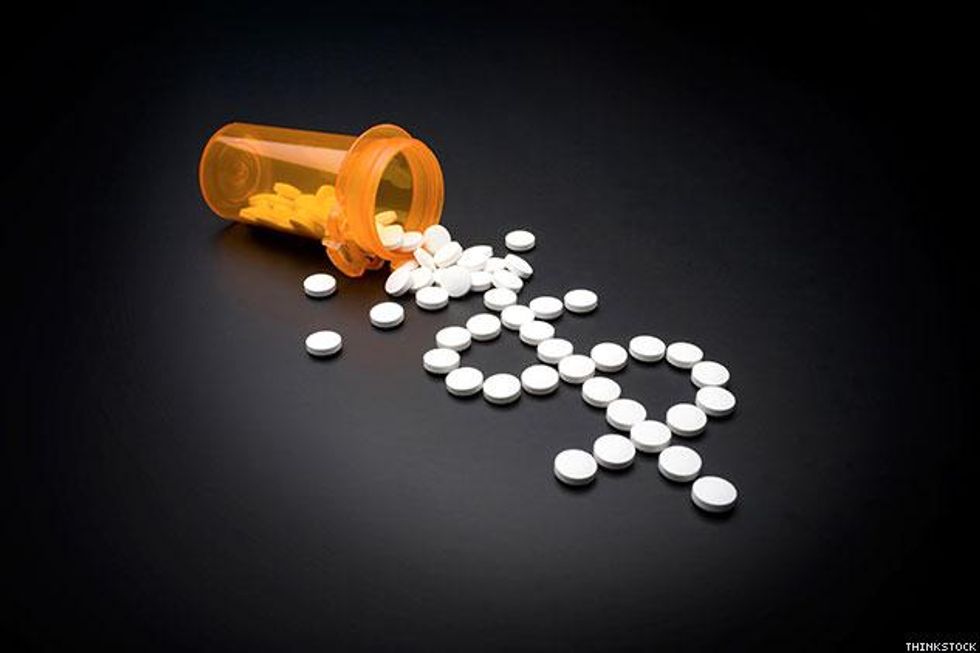 BIG PHARMA, BIG WINNERS?
BIG PHARMA, BIG WINNERS? ARE PEOPLE WITH HIV THE BIGGEST LOSERS?
ARE PEOPLE WITH HIV THE BIGGEST LOSERS?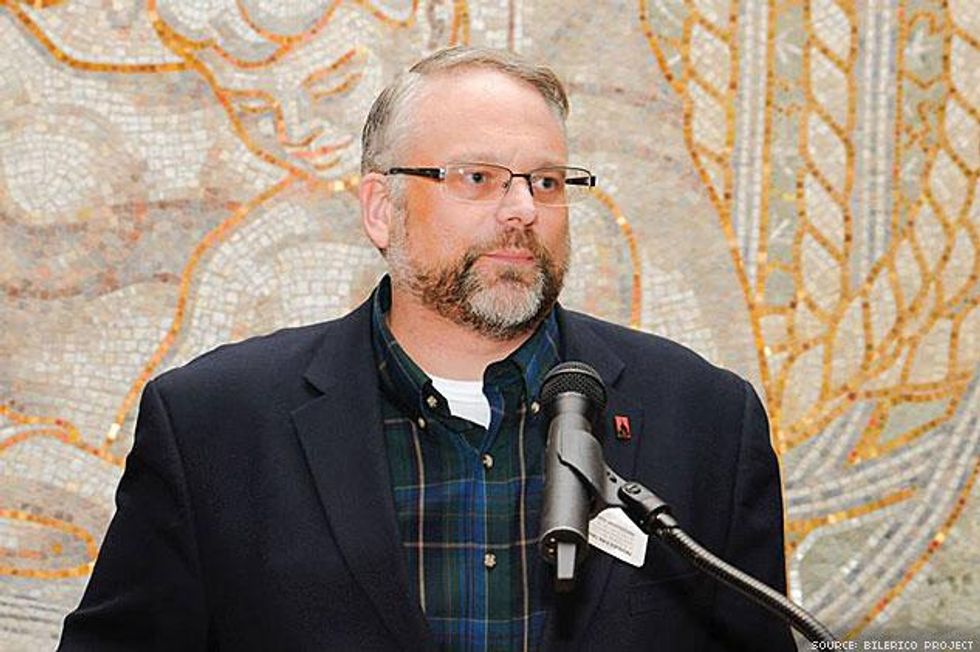 OTHER OPPOSITION TO TPP
OTHER OPPOSITION TO TPP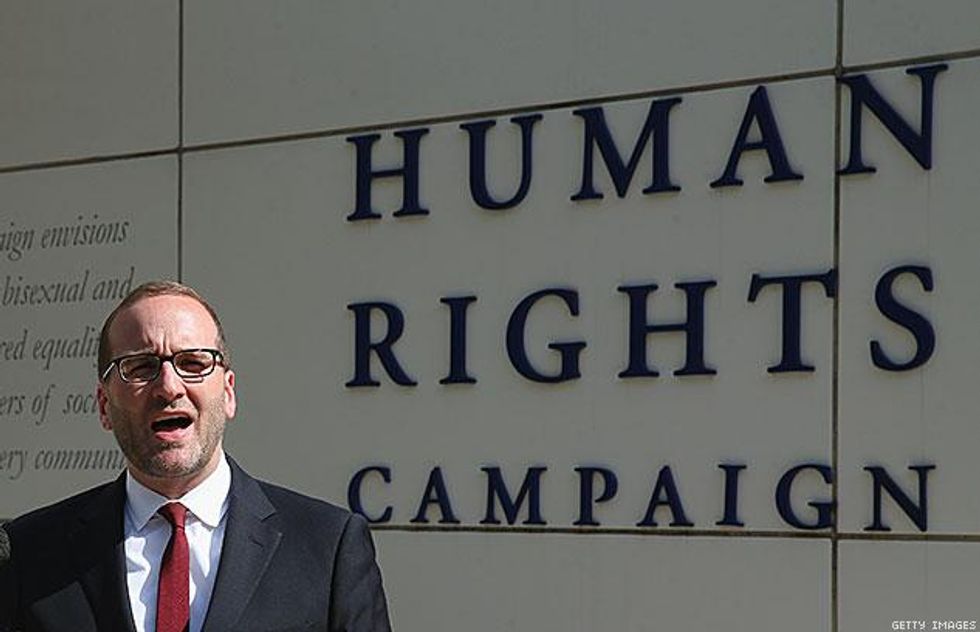 WHY NO LGBT RESPONSE?
WHY NO LGBT RESPONSE?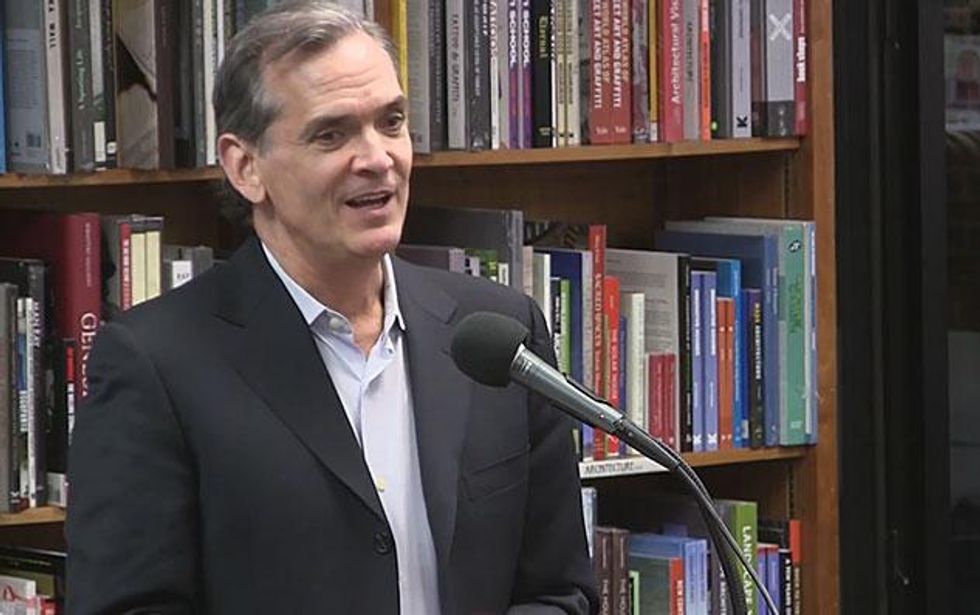 THE SILENCE IS DEAFENING
THE SILENCE IS DEAFENING 








